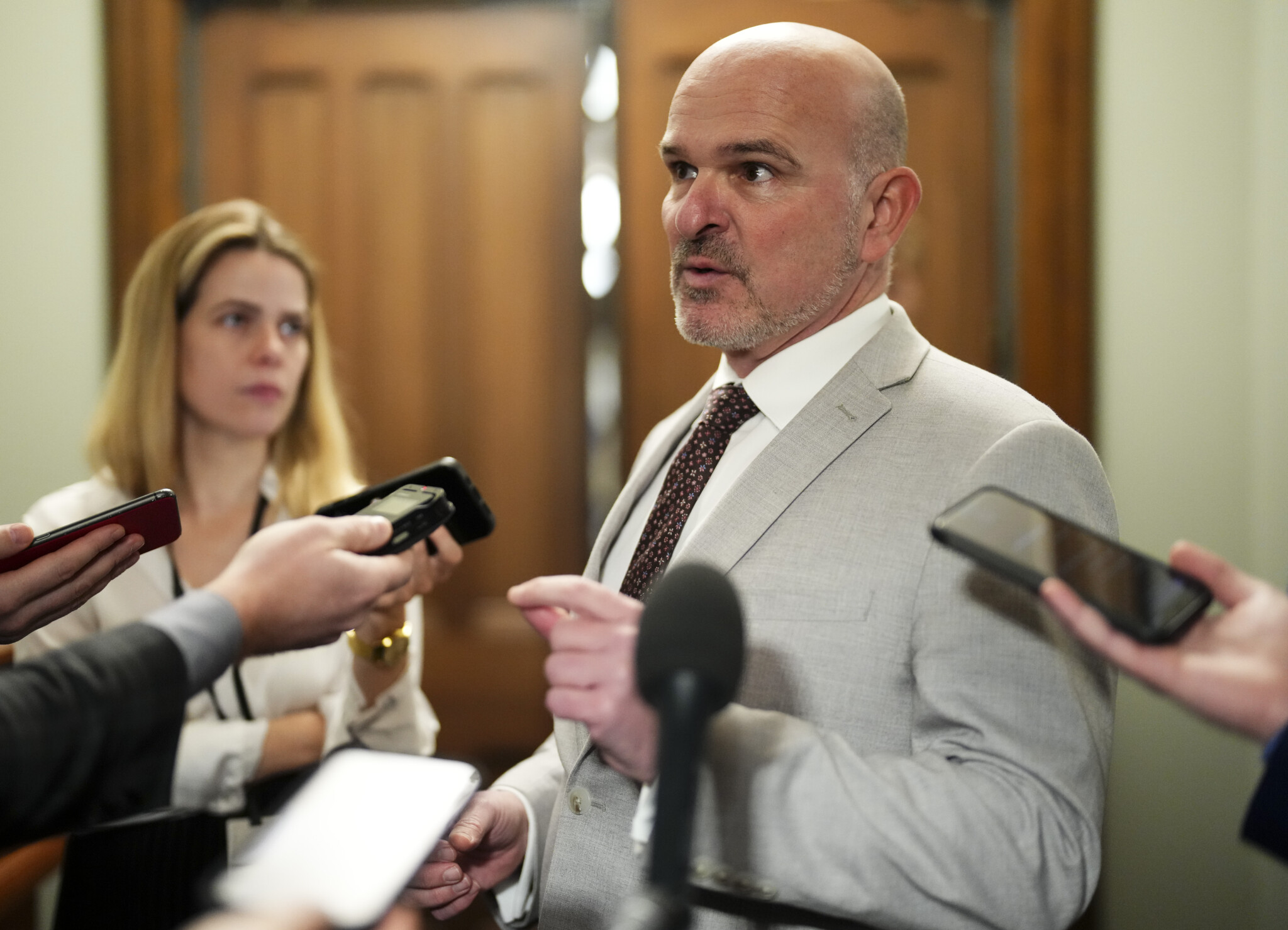It takes more than your average scandal to get a cabinet minister removed from Prime Minister Justin Trudeau’s government. His tolerance for conflicts of interest and suspect dealings seems ever higher, as though negatively correlated to his near-zero tolerance for independent thought.
But Randy Boissonnault, the now-former Employment minister, finally managed this practically unheard-of feat. On Wednesday, Trudeau announced Boissonnault would “step away from cabinet effective immediately.” This comes after months of scrutiny on his former business Global Health Imports (GHI), which claimed to be “Indigenous-owned” in bids for federal contracts even as Boissonnault’s Indigenous heritage claims shifted wildly.
The saga and its fallout should extend far beyond Boissonnault and GHI, which are merely the most publicly recognizable tips of the iceberg that is the government’s Indigenous business procurement targets. These affirmative action style mandates should be scrapped, along with the very idea that government contracts should be awarded to favour certain identities.
In 2021, Trudeau’s Liberals announced that a minimum of 5 percent of all federal department and agency contracts must go to Indigenous businesses. Even prior to these targets, a business’ inclusion in the government’s Indigenous Business Directory meant favourable treatment and limited competition for some contracts.
However, like many well-intentioned, poorly executed diversity initiatives, outcomes haven’t only not lived up to expectations, but perpetuated harm.
In practice, such programs create perverse incentives to cheat the system, are practically impossible to audit at scale, and often fail to help the communities they claim to serve. Moreover, they fail to guarantee top value for taxpayer dollars.
In GHI’s case, the company was never actually awarded the contracts it applied for under false claims of Indigenous ownership (although it did receive other government contracts). As for Boissonnault, he denies any involvement in GHI since his re-election in 2021 and alleges his former business partner worked in a silo to “advance his personal interests.”
However, GHI isn’t an aberration—there have been other high-profile reports of alleged fraud and misrepresentations of Indigenous ownership that did result in major federal contracts. The most notable is the ArriveCan app, which saw a $7.9 million contract go to Dalian Enterprises Inc, self-described as “Aboriginally owned, veteran operated.” The company has received more than $200 million in federal contracts since 2015, although it’s now suspended from working on existing contracts or bidding for new ones.
In 2023, the owner of another IT firm flagged concerns about Dalian’s contracting process in front of a House committee, saying it’s “another example of monetization and theft using the trauma of marginalized communities.” They claim Dalian, a two-person company, offered itself up for joint bids with larger non-Indigenous companies interested in “Aboriginal contracts.” Other times, it’s alleged Dalian, after securing a government contract, would disperse government funds and the work to other, non-Indigenous contractors.
Indeed, when questioned by MPs about his firm’s work on ArriveCan, Dalian’s president and founder could barely articulate what his company did on the project and admitted to typically subcontracting out federal work to other companies.
There have also been questions about the validity of his heritage claims, which led Indigenous Services Minister Patty Hajdu to admit, “It’s really complicated, actually. Defining who is Indigenous is challenging in some cases…Indigeneity—this is a difficult concept.”
Non-Indigenous companies either colluding with Indigenous entrepreneurs or exploiting them to form shell companies that profit from government contracts is not a new phenomenon. Neither are suspect, if not outright fabricated, Indigenous heritage claims in pursuit of gated opportunities.
In 2016, it was discovered that Canadian Health Care Agency (CHCA), a major nursing contractor for remote and Indigenous communities, got itself listed on the federal Indigenous Business Directory by entering into a partnership with a one-person foot-care company owned by a First Nations nurse. However, the nurse had next to no say in the company and, worse, was eventually pinned with a $500,000 tax bill when the arrangement was audited.
While CHCA was removed from the Indigenous Business Directory as of 2019, nothing prevented the company from applying to other government contracts not set aside for Indigenous businesses. It has since received at least 30 contracts from Indigenous Services Canada, totalling $131.7 million.
That more shameless opportunists and fraudsters have since pursued contracts meant for Indigenous businesses should’ve been a predictable consequence of basing more government procurement, and ever-larger amounts of funding, on identity.
Indigenous leaders themselves are ringing the alarm that the federal government’s Procurement Strategy for Indigenous Business (PSIB) is deeply flawed. In September, Assembly of First Nations (AFN) Regional Chief Joanna Bernard told a House committee, “There is currently no consistent way of verifying the legitimacy of Indigenous businesses, which creates a risk of false claims, tokenism…exploitation of bad actors.”
While some may argue for increased auditing or different methods of identity verification, the reality is neither are realistic solutions. The federal government simply doesn’t have the capacity to—nor should it dedicate mass resources to—successfully audit a program that incentivizes fraud by being based on difficult-to-verify identity claims and ownership percentages that look good on paper but are obscure, if not meaningless in practice.
As it stands, according to a recent CBC report, most contracts awarded to Indigenous-identifying businesses through PSIB last year were not audited.
We simply don’t know how much of the massive amount of public money earmarked for Indigenous contracts actually flows to Indigenous entrepreneurs, let alone back into Indigenous communities in legitimate need of economic stimulus and access to opportunities.
At the same time, taxpayer dollars aren’t being protected on multiple fronts. The government isn’t able to assure the public their taxes aren’t going to frauds and frontmen, let alone that we get the best value and outcomes from the best companies for our money.
Rather than continue identity-based procurement policies, a likely incoming Pierre Poilievre government should focus on providing education, coaching, and resources to help small businesses across Canada, particularly in rural and remote communities. The goal should be to help them develop the skills and corporate capacity to compete for contracts.
A Conservative government should also address the longstanding and well-known biggest barrier to not just minority entrepreneurs, but all small business owners, accessing government contracts: the process is too darn complex and confusing. Many aren’t even aware opportunities exist. Poilievre should take his fondness for clear, concise language and apply it to the procurement process. Simplify it, put it in plain language, shorten timelines, and then dedicate resources to awareness and education.
At the same time, we should retool procurement processes to reward inventive and outside-the-box solutions rather than rigid, and often outdated bureaucratic biases. This would naturally open government contracts to a wider, more diverse pool of applicants and encourage innovation, healthy competition, and productivity over ticking boxes.
It’s safe to say Boissonnault’s time in cabinet didn’t end with the legacy he hoped, but it would be a shame for such a scandal to go to waste, used only for partisan barbs rather than a push for much-needed, common-sense reform. Procurement may be a typically wonkish topic, but it couldn’t be more vital to how Canadians experience government and access services. Federal policy must abandon its misguided adventures in identity politics to laser-focus on results.










